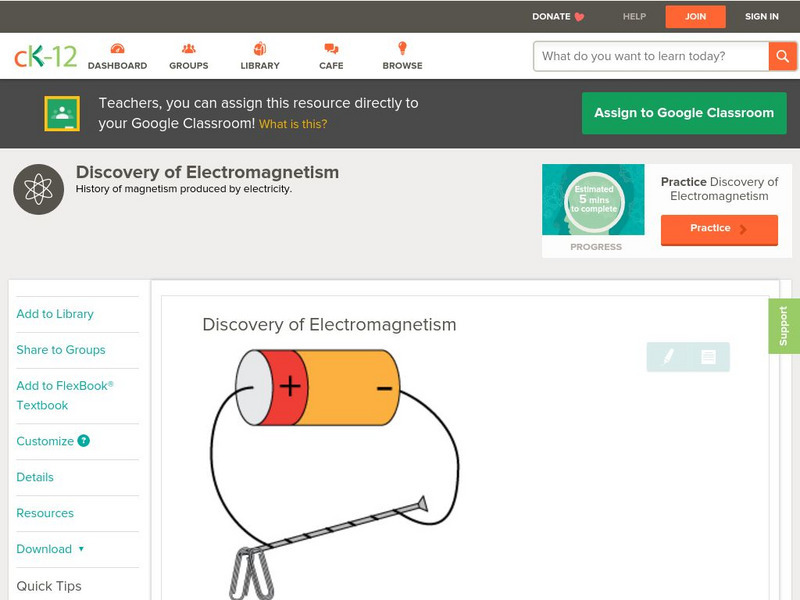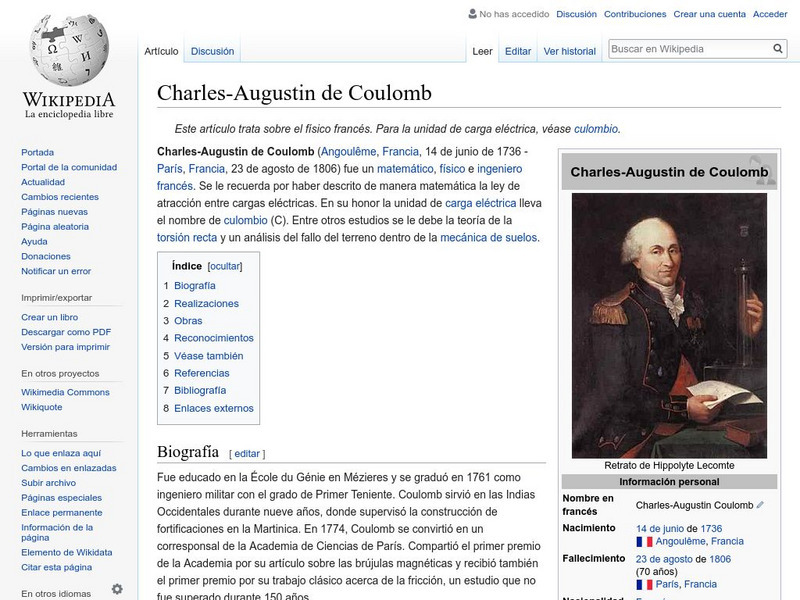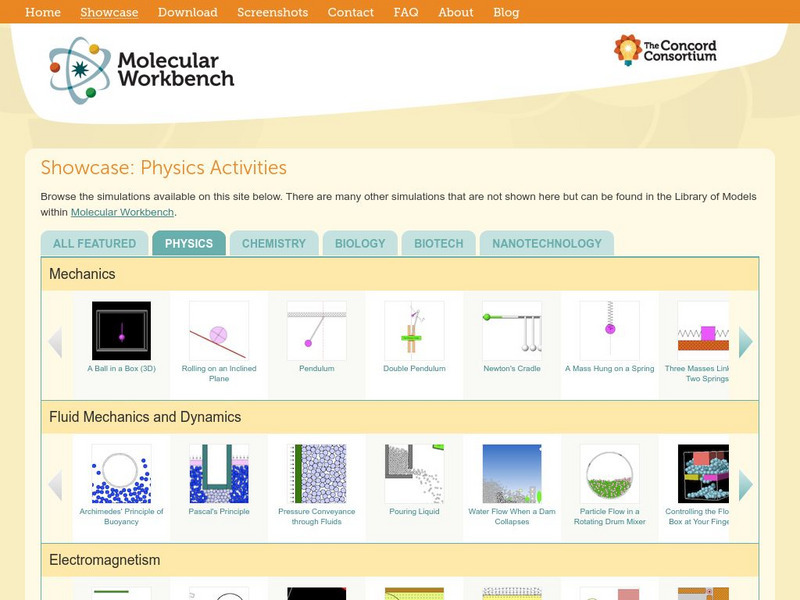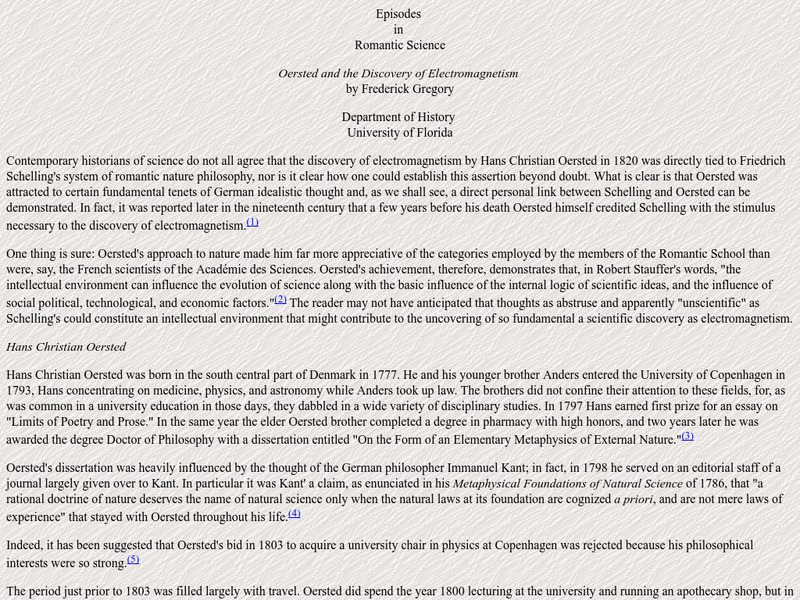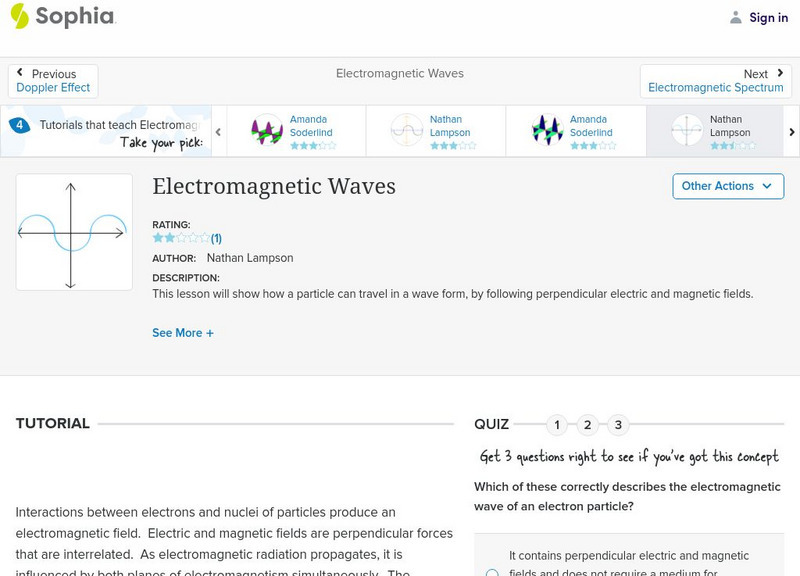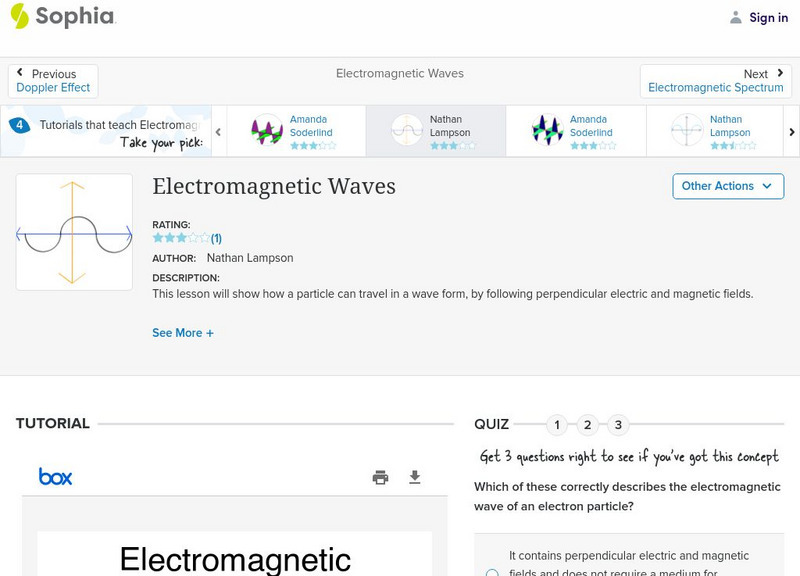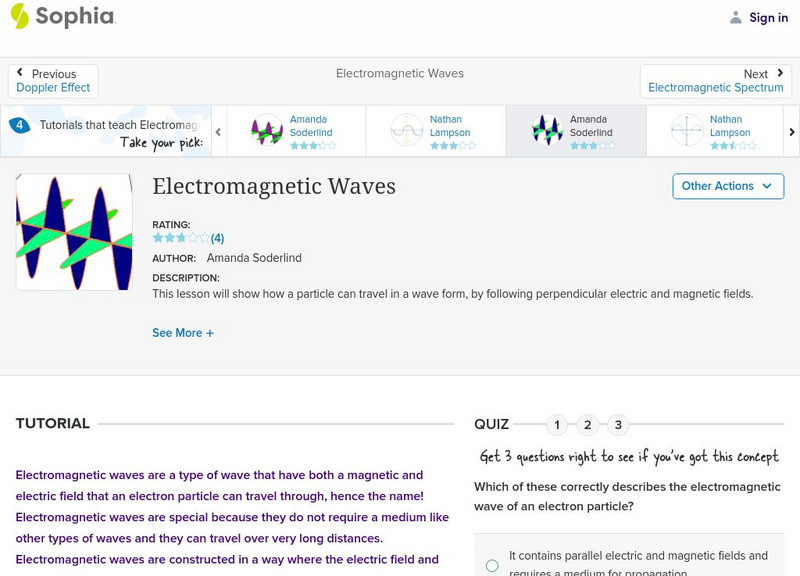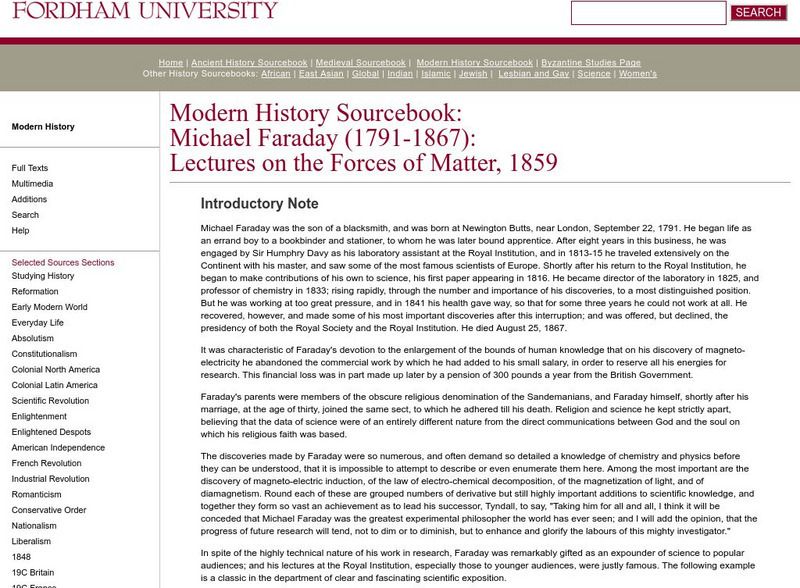Khan Academy
Khan Academy: Light: Electromagnetic Waves, Electromagnetic Spectrum and Photons
This article discusses the properties of electromagnetic radiation and photons.
National High Magnetic Field Laboratory
Magnet Academy: Arc Lamp 1876
Fire lighted the night for many centuries. Then came Sir Humphry Davy and the birth of the arc lamp, an invention built upon in the years that followed by many.
Creative Science Centre
Creative Science Centre: Perhaps the Simplest Homemade Generator in the World
This very simple, but effective generator shows in a wonderfully engaging way the fundamentals of electricity generation. The generator is made from a coil of wire wound around the outside of a plastic 35mm-film can. The two coil ends...
Exploratorium
Exploratorium: Curie Temperature
In this experiment, students experience the Curie point--and what happens when a piece of iron gets too hot to attract a magnet.
CK-12 Foundation
Ck 12: Physical Science: Discovery of Electromagnetism
[Free Registration/Login may be required to access all resource tools.] Covers the discovery of electromagnetism, how it relates to electricity, and Faraday's law.
ClassFlow
Class Flow: Turning on the Lights
[Free Registration/Login Required] In this lesson students learn the parts of a circuit, build series and parallel circuits, learn about insulators and conductors, and more in this interactive multimedia flipchart.
American Association of Physics Teachers
Com Padre Digital Library: Open Source Physics: Electric Generator Model
An electromagnetic induction model that simulates an electric generator made from a conducting loop rotating in a uniform magnetic field and connected to an ammeter.
Wikimedia
Wikipedia: Charles Augustin De Coulomb
Spanish-language site lets students discover the life and work of this physicist and engineer, who is known for his studies of electric charges.
Science Struck
Science Struck: The 13 Types of Energy and Their Applications
Read about all the different kinds of potential and kinetic energy. Includes energy formulas and examples of energy applications.
Discovery Education
Discovery Education: Curriculum Center: Science
The Discovery Channel provides numerous topics that are the most popular science topics taught in upper elementary and middle school. Content is organized by topics (Bacteria, Oceans, Solar System, etc.); all topics include quick facts,...
Concord Consortium
Concord Consortium: Molecular Workbench Showcase: Physics, Electromagnetism
Students can use these simulations to understand concepts in electromagnetism. Simulations are available on the following concepts: Lorentz Force, The Hall Effect, capacitor, conductor, transistor, cyclotron, static electricity....
Other
Stile: 2.1 Lesson: Electromagnetism (Part 1)
This is a sample lesson on electromagnetism. It includes animated diagrams, interactive exercises, an audio option for reading the text, and comprehension questions throughout where students can type their answers or pick from...
University of Florida
University of Florida: Episodes in Romantic Science
One of the "Episodes in Romantic Science," this is as complete as a biography gets without being a book. Includes great information about Oersted and his electromagnetic work, The definitive source. Heavily footnoted with many additional...
Cuemath
Cuemath: Vectors
Explore the world of vectors, by finding answers to questions like what are vectors, what are scalars, what is the difference between scalar and vectors, the magnitude of a vector, operations on vectors, and properties of a vector.
Sophia Learning
Sophia: Electromagnetic Waves: Lesson 2
This lesson will show how a particle can travel in a wave form, by following perpendicular electric and magnetic fields. It is 2 of 4 in the series titled "Electromagnetic Waves."
Sophia Learning
Sophia: Electromagnetic Waves: Lesson 3
This lesson will show how a particle can travel in a wave form, by following perpendicular electric and magnetic fields. It is 3 of 4 in the series titled "Electromagnetic Waves."
Sophia Learning
Sophia: Electromagnetic Waves: Lesson 4
This lesson will show how a particle can travel in a wave form, by following perpendicular electric and magnetic fields. It is 4 of 4 in the series titled "Electromagnetic Waves."
San Jose State University
Sjsu Virtual History: Joseph Henry
A concise biography on Joseph Henry gives details on his education; his experimental work in chemistry, electricity, and magnetism; and the many board positions he held throughout his life.
TED Talks
Ted: Ted Ed: How Does an Atom Smashing Particle Accelerator Work?
An atom smasher, or particle accelerator, collides atomic nuclei together at extremely high energies, using engineering that exploits incredibly cold temperatures, very low air pressure, and hyperbolically fast speeds. Don Lincoln...
CK-12 Foundation
Ck 12: Physical Science: Electromagnetic Waves
[Free Registration/Login may be required to access all resource tools.] Provides the definition of an electromagnetic wave, electromagnetic radiation, and electric and magnetic fields. Also discusses how electromagnetic waves begin,...
Internet History Sourcebooks Project
Fordham University: Modern History Sourcebook: Michael Faraday (1791 1867)
Contains brief biographical information on Michael Faraday, as well as the text of the following lectures delivered by Faraday: The Force of Gravitation, Gravitation-Cohesion, Cohesion-Chemical Affinity, Chemical Affinity-Heat,...
National High Magnetic Field Laboratory
Magnet Academy: Duchenne Machine 1850
French physician Guillaume Benjamin Amand Duchenne invented a device that electrically stimulates muscles. The apparatus gave him new insight into neuromuscular disorders, earned him the epitaph of "father of electrotherapeutics," and...
Florida State University
Florida State University: Magnet Lab: Electric Meter 1872
The invention of the light bulb quickly created the need to track people's electricity usage. In 1872, Samuel Gardiner built the first simple power meter: a lamp with an attached clock that recorded the time the light was on.
National High Magnetic Field Laboratory
Magnet Academy: Magnetometer 1832
The Earth, the moon, the stars and just about everything in between has a magnetic field, and scientists use magnetometers when they need to know the strength of those fields.




